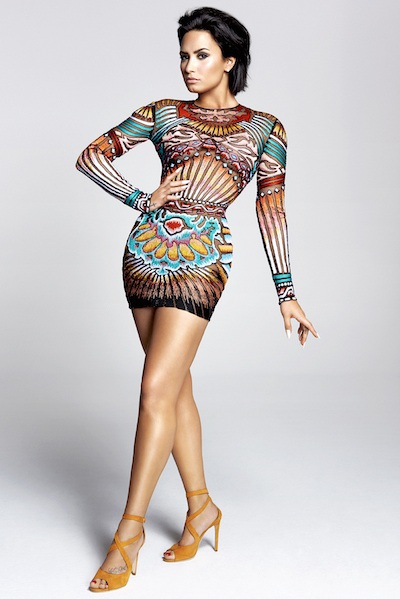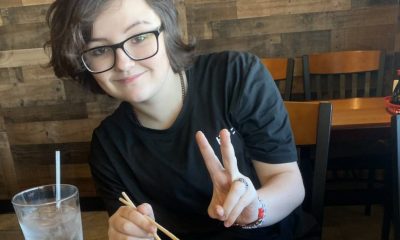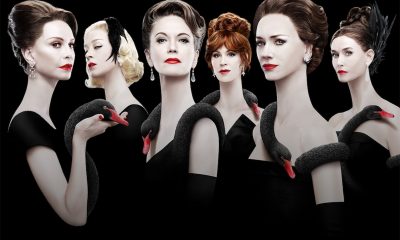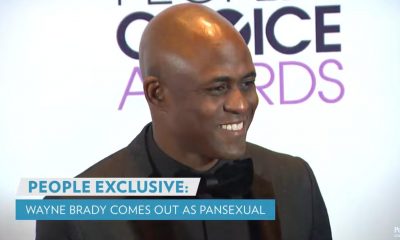Music & Concerts
Lovato, Jonas kindred spirits
Singers bond over music, gay rights
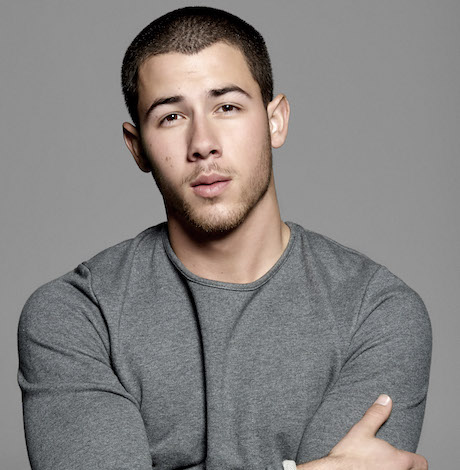
‘2016 Honda Civic Tour Featuring Demi Lovato & Nick Jonas: Future Now’
Tuesday, July 26
7 p.m.
Verizon Center
601 F St., N.W.
$25-80
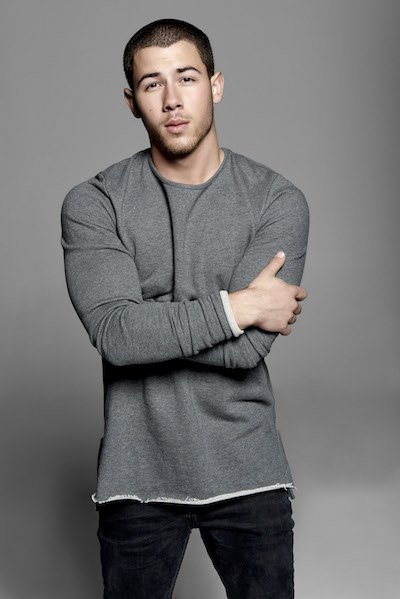
Nick Jonas joins Demi Lovato on the D.C. stop of their Future Now Tour on Tuesday, July 26. (Photo courtesy 42 West)
Singer and actress Demi Lovato is a strong supporter of LGBT rights. She played a lesbian character on Fox’s “Glee,” served as grand marshal of the Los Angeles Pride Parade this year and has spoken openly about her grandfather’s homosexuality. She’s also partnered with the Human Rights Campaign on the Americans for Marriage Equality campaign, which supports marriage equality.
“Well, I think first of all, for me, my connection with the gay community — the LGBT community — I’ve always kind of been kind of like an outsider when I lived in Texas,” Lovato says. “I never fit it and I didn’t agree with a lot of the opinions down in the South, and when I got out to California, I just saw a whole new world and I thought I have no idea why this isn’t like the rest of the U.S., and the rest of the world, to be honest. So, I’m just standing up for what’s right and that’s my connection with it.”
On July 26, Lovato and touring partner Nick Jonas head to the Verizon Center as part of their Honda Civic Tour: “Future Now,” in support of Lovato’s newest album, “Confident” and Jonas’ latest release, “Stone Cold.”
Never afraid to speak her mind, earlier this year Lovato appeared at the Billboard Music Awards wearing a mesh shirt with a symbol that’s come to represent trans people in the ongoing fight for trans legal protections (and the opposition’s obsession with bathrooms).
“I feel like, for me, I want to use my voice to make a difference in the world,” Lovato says. “There’s so much more to my voice than just singing and I learned that at a young age. I had a moment where I just thought, ‘You know I want to do so much more than just sing,’ and I grew up with people that were judged for being gay and I never understood it.”
Lovato and Jonas even decided to cancel their performances in North Carolina in support of these beliefs.
“I think that Demi and I felt it to be really important and it’s a tough call to make,” Jonas says. “We obviously feel disappointment ourselves knowing that our fans that were looking forward to the show were disappointed but there are these moments when something is as important to you as this issue was and is, where you kind of have to make a strong stand and hope that your fans unify with you and do their best to make that change and see positive outcomes. But it is just an overall disappointing situation and hopefully there are artists that are always willing to make bold choices to stand for what they believe in.”
Lovato agrees.
“I think that anything that you do, you need to do it to the max and if you can make a difference by, for instance, with the Billboard Awards, I knew that this was an issue that we had been dealing with, with the cancellation of the shows,” she says. “I wanted to make an impact and I wanted to make a statement that said, ‘Hey, listen, I hear you, I’m really sorry to the fans that are going to miss the show but this is an important issue to me and I want to speak out and I want to use my music to do it. I think it’s important for artists to remember that they can use their platform for the better.”
Although Lovato and Jonas are proud of their Disney pasts — she from the show “Sonny With a Chance,” he from “Jonas L.A.” and both from the “Camp Rock” movies — both have seen their music transform from Disney Radio to more adult mainstream.
“Demi is pushing me to get more vulnerable in my music with this next record and encouraging me to really open up about some things that happened in my life that I think will help people get even more connected to me,” Jonas says. “Those moments among friends and creative relationships are so important because I think they really shape not only your next steps but the way the world sees you as well which is key in making a transition from a youthful career to what hopefully is a long-lasting adult tour.”
Lovato feels the transition was a little easier for her due to the press about her rehab and problems she encountered through the years.
“I kind of grew up really fast in the public eye in that way and so when it was time to release my music, I think people looked at me differently,” she says. “I wanted to prove to people that I wasn’t just a stereotypical Hollywood starlet that goes to rehab and falls back into the trap of the things that got her there. I wanted to make sure that the music that I made was great and that I was passionate about the music that I put out and I sang my heart out and I also wanted to continue the message of using my platform for more things than just singing about heartbreak. That’s what music is for, is getting you through times, but also using it to inspire people.”
Music & Concerts
Washington chorale kicks off Christmas with vibrant program
‘Thine Own Sweet Light’ concerts planned
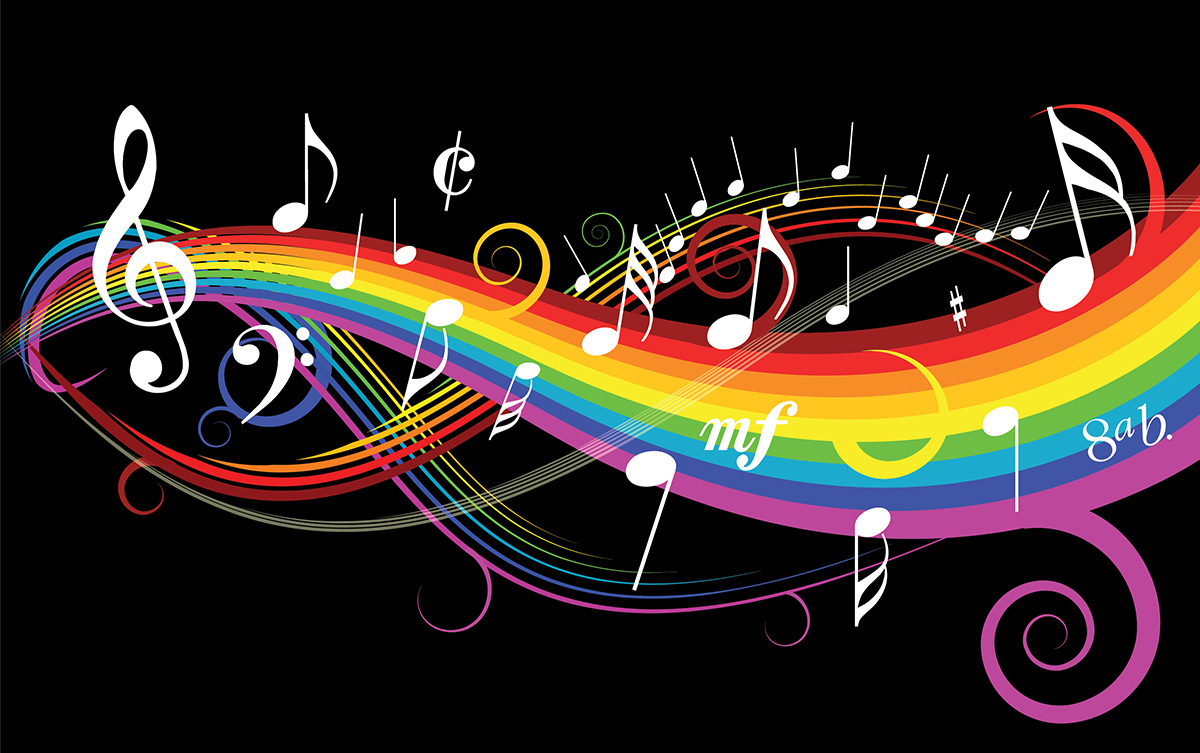
The full Washington Master Chorale will return for its annual holiday concert tradition with “Thine Own Sweet Light” on Friday, Dec. 19 and Sunday, Dec. 21 at St. Ann’s Catholic Church (D.C.) and Church of the Epiphany (D.C.).
The concert will feature the rich sounds of the 50-voice, a cappella chorus performing lush, seasonal choral music inspired by the theme of light. Highlights include Edvard Grieg’s “Ave Maris Stella,” Eric Whitacre’s “Lux Aurumque,” and Christopher Hoh’s “Holy, Holy, Holy is the Lord God of Hosts.” The program will also present a new work by Barcelona composer Josep Ollé i Sabaté, along with charming holiday folk songs and seasonal favorites.
For more details, visit the Washington Master Chorale website.
Music & Concerts
Queer mega stars (and allies) ready to take D.C. stages this fall
Watch LGBTQ icons light up stages across the DMV as they sing, dance, and drag their way through spectacular shows.
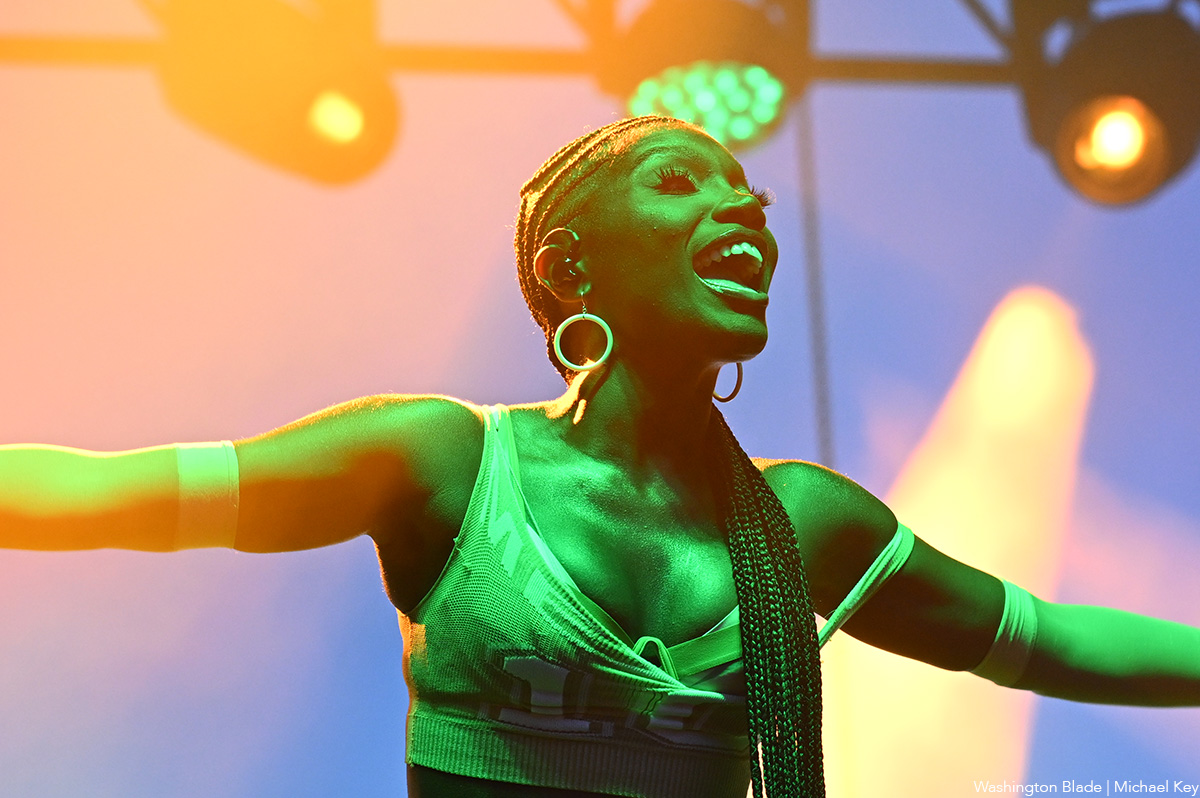
One of the best ways to welcome fall is by catching LGBTQ performers (and their allies) lighting up some of the D.C. area’s biggest stages. From country and pop to drag and rock, the season is packed with shows you won’t want to miss.
Maren Morris – The country, rock, and pop diva—known for hits like “The Bones” and for standing up against Nashville’s anti-LGBTQ voices—takes the stage at Wolf Trap (1551 Trap Rd, Vienna, Va.) on Friday, Sept. 12 at 8 p.m. Tickets start at $64.
RuPaul – The mother of modern drag and host of “RuPaul’s Drag Race” will spin a DJ set at Echostage (2135 Queens Chapel Rd NE) in Northeast D.C. on Sept. 20. Before RuPaul swaps wigs for headphones, Trade and Number 9 owner Ed Bailey will warm up the decks. For tickets and details visit echostage.com.
Conan Gray – The queer pop prince, celebrated for his Gen Z anthems like “Heather” and “Maniac,” brings his Wishbone Pajama Show to EagleBank Arena in Fairfax, VA, (4500 Patriot Cir) on Sept. 20 at 8 p.m. Tickets start at $113. For more info visit shop.conangray.com/pages/tour.
All Things Go Music Festival – With a lineup that includes Noah Kahan, Lucy Dacus, Kesha, Clairo, Doechii, and more, the beloved LGBTQ-friendly festival takes over Merriweather Post Pavilion (10475 Little Patuxent Pkwy, Columbia, Md.) Sept. 26–28. For tickets and details visit allthingsgofestival.com.
BERTHA: Grateful Drag – This unique tribute brings drag artistry and the sounds of the Grateful Dead to The Atlantis (2047 9th St NW) on Sept. 27. Tickets start at $47 at theatlantis.com.
Peach PRC – Rising Australian pop star and out lesbian, whose confessional tracks like “Perfect for You” and “Forever Drunk” have made her a queer TikTok darling, performs at The Atlantis on Sept. 29 at 6:30 p.m. The show is general admission only. Additional details are on theatlantis.com.
Addison Rae – The TikTok star-turned-pop princess, who’s crossed over into music with glossy hits like “Diet Pepsi” brings her sold out show to The Anthem (901 Wharf St., S.W.) on Sept. 30. Tickets are sold out, but resale options start around $80. For more info visit theanthemdc.com.
The Rocky Horror Picture Show 50th Anniversary – Celebrate the cult classic that’s been a queer midnight-movie staple for decades, with Barry Bostwick (a.k.a. Brad Majors) at the Warner Theatre (513 13th St., N.W.) on Oct. 2 at 8 p.m. Tickets start at $41 via Ticketmaster.
Chaka Khan, Patti LaBelle, Gladys Knight & Stephanie Mills – Four legends, one stage. Between Khan’s funk, LaBelle’s soul, Knight’s R&B, and Mills’ powerhouse vocals, this concert at Capital One Arena (601 F St NW) on Oct. 3 at 8 p.m. promises pure diva magic. Tickets start at $103. For more details visit capitalonearena.com.
Lorde – Joined by The Japanese House and Chanel Beads, the Grammy-winning New Zealand singer-songwriter behind “Royals” and “Solar Power” returns to The Anthem on Oct. 4 at 7 p.m. Lorde has long been embraced by queer fans for her dreamy pop and subversive lyrics. For more info visit theanthemdc.com.
Andy Bell (of Erasure) – The British queer rock icon, best known for synth-pop classics like “A Little Respect” and “Chains of Love,” brings his Ten Crowns Tour to the Lincoln Theatre (1215 U St., N.W.) on Friday, Oct. 17 at 8 p.m. Tickets are $90.45.
Doechii – The self-described queer “Swamp Princess”—and WorldPride 2025 headliner—continues her breakout year with the Live from the Swamp Tour at The Anthem on Oct. 21 at 8 p.m. Known for blending rap, R&B, and avant-garde performance art, Doechii is one to watch. Tickets start at $153.
Neon Trees – The out-and-proud Utah rockers behind “Everybody Talks” and “Animal” perform at the Lincoln Theatre on Friday, Oct. 24 at 8 p.m. Lead singer Tyler Glenn, who came out publicly in 2014, has become a strong queer voice in alternative rock. For tickets and info visit impconcerts.com.
Sasha Colby – The “RuPaul’s Drag Race” Season 15 winner strips down on the Stripped II Tour at the Warner Theatre on Nov. 2 at 8 p.m. Tickets available now on Ticketmaster.
Lola Young – The bisexual indie-pop sensation, whose raw songwriting has earned her millions of TikTok fans and multiple chart soaring hits visits The Anthem on Nov. 9 at 8 p.m. Tickets are still available.
Opera Lafayette
Featuring Mary Elizabeth Williams as Dido
+ Elijah McCormack, Chelsea Helm
Oct. 16, 7:30 p.m.
Sixth & I
PostClassical Ensemble
The Pale Blue Do: A Musical Voyage Inspired By Nature
Featuring National Geographic’s Enric Sala, Guest Curator
Wednesday, November 19, 7:30 p.m.
Terrace Theater
Washington Concert Opera
Starring Kate Lindsey, Theo Hoffman, John Moore, and Fran Daniel Laucerica
Nov. 23, 6 p.m.
Lisner Auditorium
Washington Master Chorale
An intimate a capella concert taking place in an architectural jewel, featuring cherished choral gems from Anglican and Catholic tradition and early American hymns. The concert will also present the world premiere of Christopher Hoh’s Holy, Holy, Holy is the Lord God of Hosts, and hymn singing featuring Robert Church, organist and choirmaster at St David’s.
Oct. 18, 7:30 p.m.
October 19, 5 p.m.
St. David’s Episcopal Church
Music & Concerts
Cyndi Lauper ready to have fun in Virginia
Superstar to bring final leg of farewell tour to Jiffy Lube Live
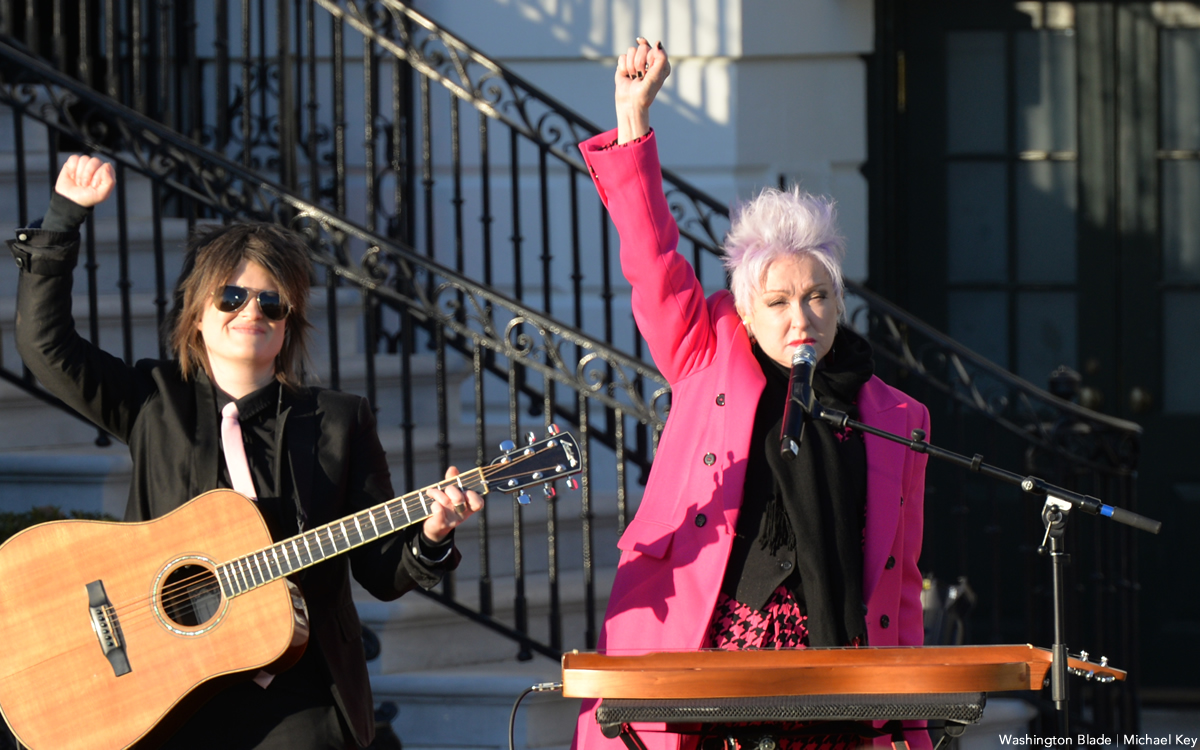
Superstar Cyndi Lauper will bring the final leg of her farewell tour “Girls Just Wanna Have Fun” to Bristow, Va., on Thursday, July 24 at Jiffy Lube Live.
Lauper’s international Farewell Tour – her first major headlining run in a decade – kicked off in North America last October, and included her first time ever headlining (and selling out) Madison Square Garden. Lauper’s performances have earned raves from the New York Times, Rolling Stone, Billboard, and many more, and surprise guests have included Chaka Khan, Sam Smith, and Hayley Williams. The tour just visited the U.K. and Europe, and will head to Australia and Japan in April.
Tickets are available on Live Nation’s website.

